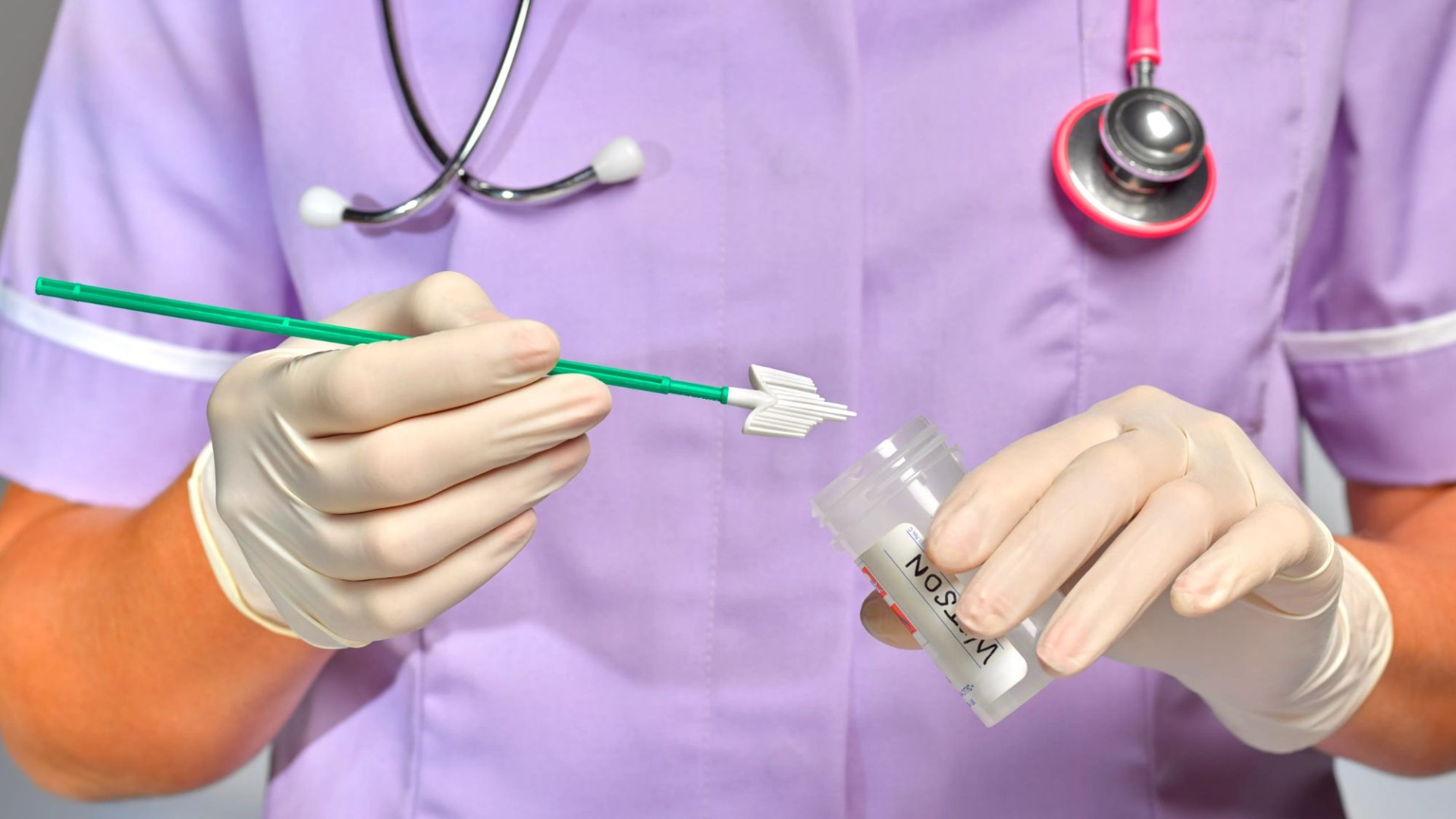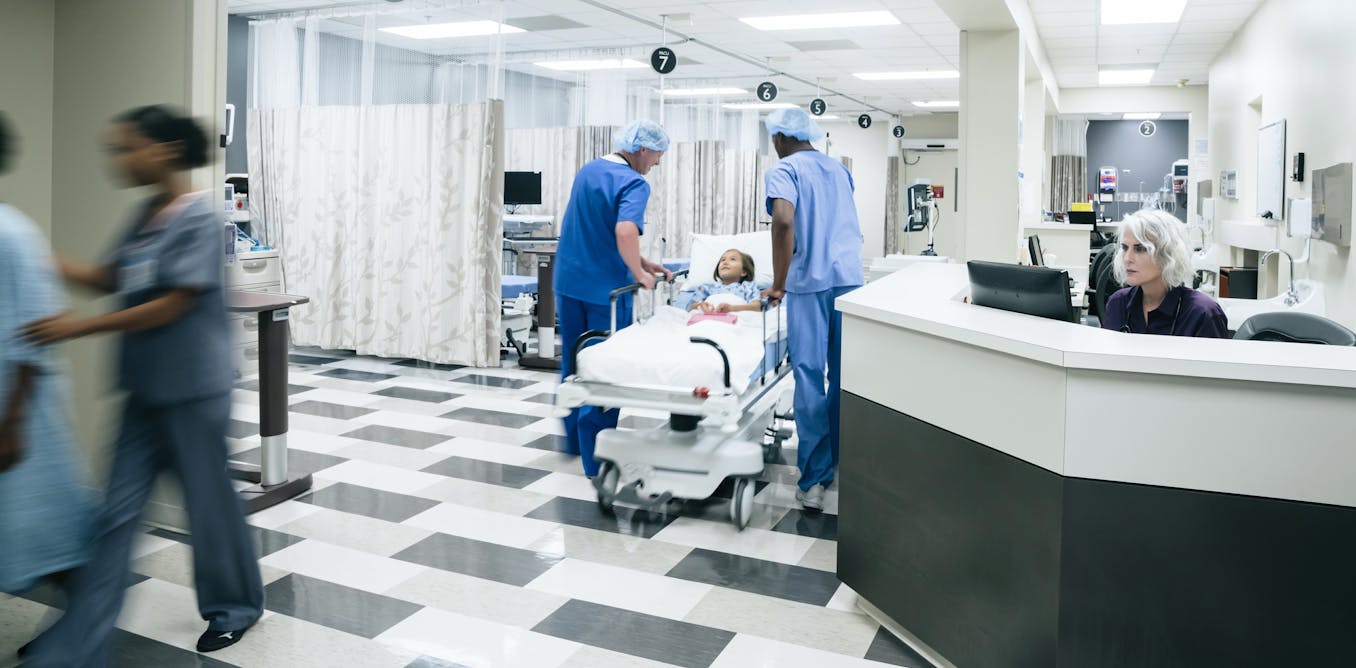EIGHT women who had their smear tests misread by screeners went on to develop cancer, a major review has found.
Eleven more were found to have pre-cancerous changes to cells and needed treatment after having their slides looked over again.
3

3
The women’s conditions were spotted in a major review of cervical screening at the Southern Health Trust, which saw more than 17,000 women approached to her their smear tests rechecked.
The review was triggered by three women being diagnosed with cervical cancer after previous abnormal smear tests were missed.
Their diagnoses were investigated as a Serious Adverse Incident and two of the women, Lynsey Courtney, 30, and Erin Harbinson, 44, have since passed away.
The examination of cancer screening at the Southern Health Trust between 2008 and 2021 found that some screeners underperformed and went unchecked by management for years.
Read more on cervical cancer
The Southern Health Trust has apologised to all those affected.
Stella McLoughlin from the campaign group Ladies with Letters said the report’s findings were shocking.
“This has been an absolute scandal from start to finish,” she told BBC NI News.
“The impact that this has had on individuals, on people’s lives, on families, words can’t describe it.
“I consider myself one of the lucky ones, there are two young women who have lost their lives.
“There are countless other women who have gone through invasive surgery, there are women who have had hysterectomies.”
She added that the situation “was allowed to go on for 10 years”.
“Smears being misread, people not being held to account, screeners not being managed properly – all of this is affecting real people.”
Just under 94 per cent of the women identified took part in the review – the trust located 513 patients who had moved outside of Northern Ireland.
Reviewers looked at two different groups of patients, the first of which was 207 who had previously been diagnosed with cervical cancer.
They found that if patient’s tests had been read correctly they may have been diagnosed and treated earlier.
Southern Health Trust said it could not be concluded that the eight women had developed cancer because abnormalities on their smear tests were missed.
The second group included 17,425 women who were asked to return to have their smears rechecked – the 11 women currently undergoing treatment for pre-cancerous cell changes were part of this group.
In an interview with BBC News NI, the Southern Trust acknowledged this was a difficult time for all of the families affected and that the process had caused anxiety.
How to protect yourself against cervical cancer
CERVICAL cancer is most commonly diagnosed in women in their early 30s, with around 3,200 new cases and 850 deaths each year in the UK.
According to CRUK, the five-year survival rate is around 70 per cent – and the earlier it is caught, the better.
Cervical screening programmes and HPV vaccines have reduced rates and save 4,000 lives each year.
It is vital you attend your smear test and get jabbed when invited, and that you know the symptoms of cervical cancer to look out for.
These aren’t always obvious, and they may not become noticeable until the cancer has reached an advanced stage.
But you might notice:
- Unusual bleeding (often after sex, between periods, or after the menopause)
- Pain and discomfort during sex
- Vaginal discharge (often unpleasant smelling)
- Pain in your lower back, between your hip bones or in your lower tummy
Women are invited to have regular cervical screenings between the ages of 25 and 64. How often depends on your age.
The HPV vaccine, which helps protect against the virus, is recommended for children aged 12 to 13 and people at higher risk from HPV.
Source: NHS and Cancer Research UK
Medical director Dr Steve Austin said a vast majority of the slides checked were normal, but recognised that some women received a different reading and have had to undergo treatment.
“We have learned lessons from everything that has happened,” he said.
“HPV screening is now in operation and the laboratory services have now been centralised in one location and other improvements have been made across the system.”
The findings will now undergo an independent expert review lead by Allan Wilson, a senior biomedical scientist at NHS Lanarkshire.
Based on those findings, the health minister will decide whether to launch a public inquiry.
How cervical screening works
In England, all women aged 25 to 64 are invited by letter to cervical screening to check the health of their cervix.
During the test, a small sample of cells will be taken from your cervix.
The sample is checked for certain types of human papillomavirus (HPV) that can cause changes to the cells of your cervix. These are called “high risk” types of HPV.
If these types of HPV are found, the sample is checked for any changes in the cells of your cervix. These can be treated before they get a chance to turn into cervical cancer.
But if no traces of HPV are found, you don’t need any further tests.
Health bosses last year raised the alarm over declining cervical cancer screening rates – with over a million eligible patients failing to take up their latest offer for a test.
NHS health leaders are also looking to make a “game-changer” DIY cervical screening test available in England via the NHS.
The test can be done at home for free – with researchers saying this could lead to around 400,000 more cancer checks every year.

3




